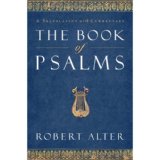Praise God for his wonderful deeds
We are forever looking for things God has done for us for which we can give him thanks. Things he has done for us and for no other people. That could be a temporal thing - we want things he has done for our generation and not for previous ones. That could be a spatial thing - we want things he has done for our village / town / county / nation and not for others. It could be both at once - things he has done for me and me alone.
Psalm 105 is a total contrast. It starts
Oh give thanks to the
Lord ;
call upon his name;

Recent comments